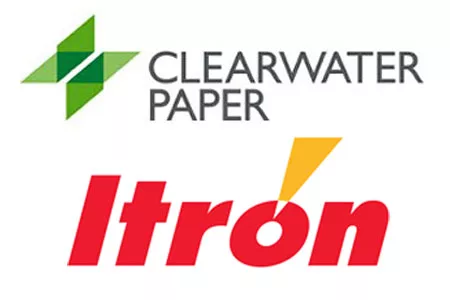Companies here pursue buybacks
Clearwater Paper, Itron invest millions in their stocks, follow big trend

Two Inland Northwest companies working in two distinct sectors have begun investing tens of millions of dollars in their respective stocks, moves one analyst says are representative of a trend among publicly traded companies.
Clearwater Paper Co., the big Spokane-based maker of tissue and paperboard products, disclosed plans last summer to buy back up to $30 million of its common stock. Itron Inc., the big Liberty Lake-based maker of automated meter-reading technology, expects to repurchase $100 million of its own stock within the next 12 months.
Steven Chercover, a Portland-based senior research analyst with D.A. Davidson & Co., says stock-buyback activity in the Inland Northwest follows a broader trend among publicly-traded companies, though he cautions that any such trend might not sustain itself.
"We've seen a fair share of it," Chercover says. "Some companies might pull back on that as the economy appears to still be touch and go."
Large publicly traded companies elsewhere that also have announced stock repurchase programs in the past year include Intel Inc., media giant Time Warner Cable Inc., and Warren Buffet-led Berkshire Hathaway Inc., among others.
Clearwater didn't place a timeframe on its repurchase plans. However, in the third quarter, when the company announced its repurchasing program, it bought shares worth about a third of the total it intends to invest in buybacks, the company disclosed in a document filed with the U.S. Securities and Exchange Commission last month.
In the SEC filing, Clearwater said it had repurchased 291,600 shares of outstanding common stock at an average price of $34.30 per share, for a total investment of just over $10 million.
As of market close on Nov. 29, the company's common stock was trading at $33.57 per share. Chercover, who follows Clearwater and currently has a buy rating on the company's stock, says the target price is $45 a share. Target price is considered the level at which an investment has realized its potential.
Clearwater's plan to repurchase shares coincided with a two-for-one stock split, which occurred Aug. 26.
Chercover says one reason for the buyback, in this instance, is to offset any stock-price dilution that could occur after such a split.
For Itron, when it announced its repurchase program on Oct. 26, company President and CEO Leroy Nosbaum said the company's decision "underscores our confidence in the long-term prospects of the company." He also said the company's healthy cash flow "allows us to be opportunistic in repurchasing shares while continuing to serve our customers and invest in the business."
The repurchase plan announcement came out with Itron's third-quarter results, in which the company reported a third-quarter net loss of $517.1 million, or $12.70 a diluted share, down sharply from net income of $41.4 million, or 68 cents a share, in the year-earlier period. At that time, the company said it planned to cut 750 full-time positions at its manufacturing facilities worldwide.
Marni Pilcher, Itron's director of investor relations, says the company isn't disclosing stock-buyback activity yet. It likely won't do so until it files a quarterly report for its current fourth quarter.
As of market close on Nov. 29, Itron's common stock traded at $33.89 a common share. Cantor Fitzgerald, of New York, has set Itron's target price at $42.
Chercover says stock buybacks typically occur in mature industries with companies that have strong cash flow. In many cases, he says, they occur when a company's shareholders are calling for the company to return capital to the company.
"In general, it's a discipline that stops too much cash from burning a hole in management's pockets," he says.
However, he cautions, they can have mixed results, especially if management buys right before the stock price dips.
"The verdict on them is mixed," Chercover says, adding there have been a number of instances in which a company's management thinks it's being opportunistic "only to see the share prices move lower, and then management's timing is questioned."
Related Articles


_c.webp?t=1763626051)

_web.webp?t=1764835652)
